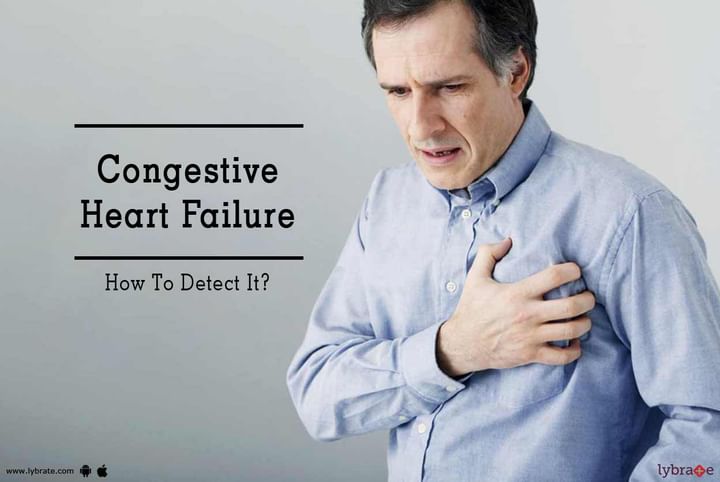Congestive Heart Failure - How To Detect It?
Congestive heart failure is a chronic progressive condition that affects the pumping power of your heart muscles. Simply referred to as heart failure, congestive heart failure can be life-threatening. It does not mean that the heart has stopped working. Rather, it means that the heart pumping power is weaker than normal. As a result, the heart cannot pump enough oxygen and nutrients to meet the body’s needs. Over a period of time, the reduced ability of the heart causes the organs to receive less amount of oxygenated blood.
Signs and symptoms of congestive heart failure: In the early stages of congestive heart failure, you most likely won’t notice any changes in your health. If your condition progresses, you will experience gradual changes in your body. The hallmark and the most common symptom of congestive heart failure is shortness of breath and it may occur while you are at rest, doing any activity that exerts your body, when you are lying flat or while getting up from sleep. Some of the other most common symptoms of congestive heart failure include a persistent and unexplained cough, swelling in the legs, ankles, abdomen, or hands, tiredness, changes in thinking and memory, nausea, rapid heart rate, and dizziness or light-headedness.
Causes of congestive heart failure: Congestive heart failure is most likely to occur in people who have other conditions that weaken the heart. The risk also increases by several lifestyle factors that are bad for the heart. Risk factors for congestive heart failure include congenital heart defects, high blood pressure or cholesterol, obesity, asthma, chronic pulmonary disease, coronary heart disease, heart infection, reduced kidney function, a history of heart attack, irregular heart rhythms, abuse of alcohol and drugs, smoking, and old age. Though there are over a hundred other less common causes of heart failure, the exact cause of congestive heart failure is often idiopathic or unknown. Congestive heart failure might also exacerbate by unhealthy lifestyle habits. Specific habits such as smoking, excessive use of alcohol, obesity, lack of exercise, high salt intake, noncompliance with medications, and other therapies may increase the risk of congestive heart failure.
Diagnosis of congestive heart failure: A doctor or cardiologist will perform a physical exam. This may involve listening to the heart for abnormal heart rhythm. Some common tests that are done to help with the diagnosis of congestive heart failure include an electrocardiogram, chest X-ray, series of blood tests, echocardiography, stress test, magnetic resonance imaging (MRI) and cardiac catheterization.
Treatment of congestive heart failure: The goal of treatment for congestive heart failure is to have the heart beat more efficiently so that it can meet the energy needs of the body. Specific treatment depends upon the underlying cause of heart failure. You and your doctor may consider different treatment, depending on your overall health and how far your condition has progressed. There are several medications that can be used to treat congestive heart failure. ACE inhibitors open up narrowed blood vessels to improve blood flow. Vasodilators are another option if you cannot tolerate ACE inhibitors. Beta blockers can reduce blood pressure and slow a rapid heart rhythm. Diuretics reduce your body’s fluid content. A surgery such as angioplasty is recommended if medications are not effective on their own.



+1.svg)
